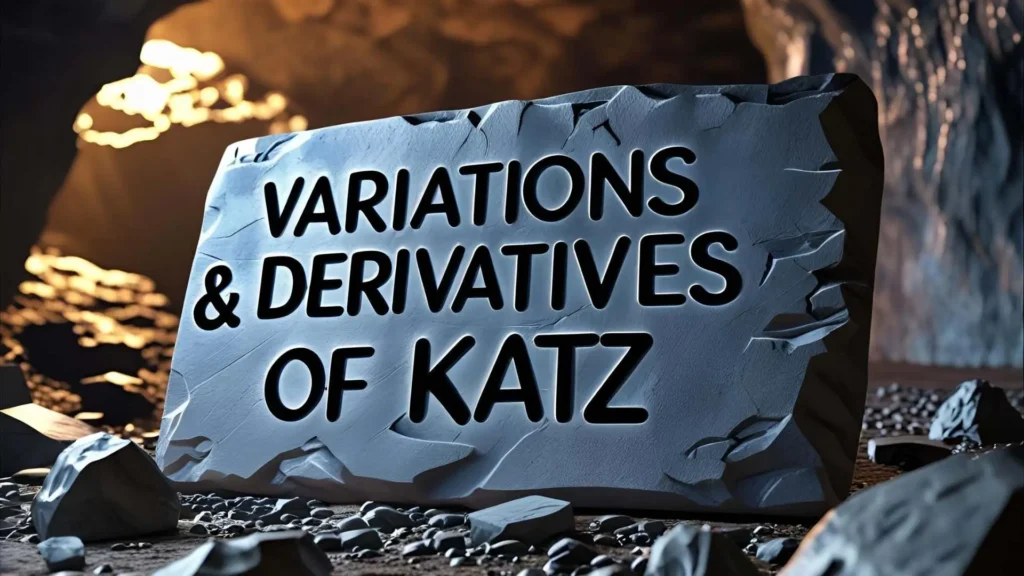The surname Katz carries with it more than just a family name. It embodies history, faith, migration, and lineage preservation.
To understand Katz meaning is to dive into centuries of Jewish tradition, priestly ancestry, and cultural memory.
From ancient Hebrew roots to New York delis, Katz tells a story that is both deeply personal and universally fascinating.
Katz Meaning

At its core, the name Katz is not a random surname. It comes from the Hebrew acronym כ”ץ, which stands for “Kohen Tzedek”—translated as “Priest of Justice.”
- Kohen: A Jewish priest, traditionally descended from Aaron, the brother of Moses.
- Tzedek: The Hebrew word for justice or righteousness.
So when someone carries the name Katz, it often implies priestly descent, placing them in the Kohanim lineage—a priestly class that played an important role in Jewish life.
“Katz doesn’t just identify a family. It connects generations to a sacred duty of service and justice.”
Origins & Etymology of Katz
The etymology of Katz is rooted in Jewish religious titles. The use of acronyms in surnames became popular in Jewish communities across Europe, especially when authorities began requiring fixed family names in the late 18th and early 19th centuries.
- Katz emerged as a shorthand for Kohen Tzedek.
- It signified families belonging to the Kohanim, who were responsible for priestly duties in the Temple of Jerusalem.
- Over time, Katz became a surname passed down through generations, even when families were scattered across Central and Eastern Europe.
Why Acronyms in Jewish Surnames?
Jewish communities often used acronyms to preserve identity while also fitting into local bureaucratic systems. Katz was short, powerful, and easy to adapt across languages.
Historical Background
The Katz surname history reflects both continuity and migration.
- Early Europe: Records show Katz families in Germany, Poland, and Russia as early as the Middle Ages.
- Diaspora and Mandates: When governments in Europe demanded Jews adopt permanent surnames, Katz became widespread among priestly families.
- Migration: As Jewish communities fled persecution or sought better opportunities, Katz families settled in the United States, Israel, and other regions.
Historical Timeline of Katz
| Century | Katz Development |
| Middle Ages | Katz used as a religious identifier for Kohanim. |
| 18th Century | Katz adopted as a fixed surname in Central & Eastern Europe. |
| 19th Century | Katz families migrated widely due to political unrest. |
| 20th Century | Katz name prominent in New York, Israel, and academic circles. |
Cultural & Religious Significance
The cultural significance of Katz is inseparable from Jewish religious traditions.
- Priestly Descent: Katz identifies descendants of the Kohanim, who trace their ancestry to Aaron, brother of Moses.
- Priestly Blessings: In Jewish ritual, Kohanim are responsible for performing the Birkat Kohanim (Priestly Blessing)—a central act in synagogue worship.
- Lineage Preservation: Families with the surname Katz often take pride in maintaining priestly identity, even centuries after the destruction of the Temple.
This is why Katz is not just a name. It’s a living reminder of a sacred responsibility.
Geographical Variations
The spread of the Katz surname reflects Jewish migration patterns:
- Central Europe: Katz found across Germany, Poland, Hungary.
- Eastern Europe: Strong presence in Russia and Ukraine.
- United States: Katz became common in New York City, a hub for Jewish immigrants.
- Israel: Katz remains a recognized surname tied to Kohanim traditions.
Katz Families in the United States
The Ellis Island immigration records show Katz as one of the frequently recorded Jewish surnames arriving from Eastern Europe in the late 19th and early 20th centuries.
Variations & Derivatives of Katz

Like many Jewish surnames, Katz evolved into multiple spellings and extensions.
- Spelling Variants: Catz, Cats, Kac (Slavic influence).
- Extended Surnames: Katzenellenbogen, a German-Jewish surname, often shortened to Katz.
- Related Priest Names:
- Cohen – Hebrew for priest.
- Kagan / Kahan – Slavic and Yiddish variations.
- Kaplan – German-derived, associated with “chaplain.”
- Cohen – Hebrew for priest.
Fun fact: The surname Katzenellenbogen literally means “cat’s elbow,” but was often shortened to Katz for simplicity.
Notable Individuals with the Surname Katz
The Katz surname has produced numerous influential figures across different fields.
Academics & Thinkers
- Elihu Katz (1926–2021): A renowned sociologist and media theorist who pioneered communication studies.
- Dov Katz: Psychologist specializing in behavioral science and human interaction.
Writers & Journalists
- Jon Katz: American author and journalist, known for works on technology and rural life.
Public Figures
Katz families have entered politics, academia, and business worldwide. In Israel, Moshe Katzav (variant of Katz) served as President.
Institutions & Places Associated with Katz
The Katz surname has also been immortalized in institutions and cultural landmarks.
- Katz’s Delicatessen (New York City)
- Founded in 1888, this deli is famous for pastrami sandwiches and has become a cultural icon.
- Featured in the classic movie When Harry Met Sally.
- Founded in 1888, this deli is famous for pastrami sandwiches and has become a cultural icon.
- Katz School of Science and Health (Yeshiva University)
- A hub for scientific research and health education, named in recognition of the Katz family’s contributions.
- A hub for scientific research and health education, named in recognition of the Katz family’s contributions.
These institutions show how the Katz name continues to resonate in modern society.
Contemporary Usage & Recognition
Today, Katz is a globally recognized surname:
- United States: Katz is especially common in Jewish communities of New York, Los Angeles, and Chicago.
- Israel: The surname remains closely tied to priestly traditions.
- Business & Media: Many Katz individuals lead companies, research institutes, or appear in journalism.
The endurance of the name demonstrates its blend of religious heritage and modern recognition.
Linguistic Notes

Katz as an Acronym
- Katz is a compact surname formed from כ”ץ (Kohen Tzedek).
- This type of acronym-based surname is unique to Hebrew naming traditions.
Pronunciation & Phonology
- In Hebrew: Katz is pronounced as Kahtz (short “a”).
- In English: Often pronounced Kæts (rhymes with “cats”).
Anglicization
When Jewish families arrived in America, Katz often kept its spelling. Other families shifted to Catz or Cats for easier pronunciation.
Semantic Alternatives | Hiatus
One interesting point of confusion is that Katz sometimes appears in discussions of hiatus (in linguistics and anatomy).
Hiatus Meaning Across Contexts
- Language (Phonology): A hiatus occurs when two vowels appear without a consonant in between (e.g., “cooperate”).
- Anatomy: Hiatus refers to an opening or gap, such as the hiatus hernia.
- Media: A show going “on hiatus” means it’s taking a break.
- Everyday Usage: Simply means pause, break, or time-out.
Synonyms for Hiatus
| Context | Synonyms |
| Formal | Intermission, Adjournment, Recess |
| Casual | Break, Time-out, Breather |
| Professional | Sabbatical, Leave of absence, Furlough |
| Creative | Pause, Interlude |
While Katz meaning is unrelated to hiatus, including this clarification helps avoid semantic confusion online.
Related & Variant Surnames
Katz connects with a family of surnames linked to Jewish priesthood traditions.
- Cohen – Direct Hebrew translation for priest.
- Kagan / Kahan – Variants found in Eastern Europe.
- Kaplan – German origin, tied to “chaplain” and priestly class.
- Katzenellenbogen – Extended surname, often shortened to Katz.
- Catz / Cats / Kac – Anglicized or Slavic adaptations.
These variations highlight how Jewish surnames evolved while preserving their religious meaning.
Conclusion
The Katz meaning goes beyond a simple translation. It is a legacy of Kohen Tzedek—Priest of Justice, carried through centuries of Jewish history. From its Hebrew acronym to its modern-day presence in New York delis and Israeli institutions, Katz symbolizes priestly lineage, justice, and resilience.
Whether as a surname, an academic legacy, or a cultural institution, Katz continues to represent faith, heritage, and identity.
To carry the name Katz is to carry a story of ancient roots and modern recognition—a name that bridges past and present with dignity and strength.


